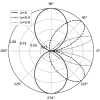Civil War Mediation and the Conflict Environment: Does Regional Instability Influence the Onset of Mediation?
IF 2.4
1区 社会学
Q1 INTERNATIONAL RELATIONS
引用次数: 0
Abstract
Hostile regional environments can spur civil war at home. Do they also affect mediation in a state’s ongoing civil war? We hypothesize they do, but in ways that produce competing effects: Third parties hesitate to offer mediation in a conflictual environment, but hostile environments also make disputants more amenable to mediation. We test these diverging expectations using a measure of conflict environments that aggregates spatially and temporally proximate civil war in a state’s neighborhood. Our empirical analyses reveal that third parties are significantly less likely to offer mediation as exogenous factors mount, a finding that holds even for third parties who have historic or security linkages to the civil war state. However, we find limited evidence that disputants’ decisions to accept mediation are driven by regional security concerns. Instead, local conflict conditions present more pressing concerns that drive disputants to accept offers to mediate. Taken together, the findings suggest potential mediators should pay attention to both a civil war state’s regional environment and local conditions, lest they underestimate disputants’ willingness to come to the table. Our work newly underscores the costs and risks associated with conflict hot spots and the risk for certain conflicts to be bypassed by peace brokers.

内战调解与冲突环境:地区不稳定是否影响调解的开始?
敌对的地区环境会在国内引发内战。它们是否也会影响一个国家正在进行的内战的调解?我们假设他们是这样做的,但以产生竞争效应的方式:第三方在冲突环境中不愿提供调解,但敌对环境也使争议者更容易接受调解。我们使用冲突环境的测量来测试这些不同的期望,这些冲突环境在空间上和时间上聚集了一个国家附近的近似内战。我们的实证分析显示,随着外生因素的增加,第三方提供调解的可能性明显降低,这一发现甚至适用于与内战状态有历史或安全联系的第三方。然而,我们发现有限的证据表明,争议方接受调解的决定是由区域安全问题驱动的。相反,当地的冲突状况带来了更紧迫的担忧,促使争端各方接受调解的提议。综上所述,这些发现表明,潜在的调解人应该同时关注内战国家的地区环境和当地条件,以免低估争端各方坐到谈判桌前的意愿。我们的工作最近强调了与冲突热点有关的成本和风险,以及和平调解人回避某些冲突的风险。
本文章由计算机程序翻译,如有差异,请以英文原文为准。
求助全文
约1分钟内获得全文
求助全文
来源期刊

International Studies Quarterly
Multiple-
CiteScore
4.10
自引率
7.70%
发文量
71
期刊介绍:
International Studies Quarterly, the official journal of the International Studies Association, seeks to acquaint a broad audience of readers with the best work being done in the variety of intellectual traditions included under the rubric of international studies. Therefore, the editors welcome all submissions addressing this community"s theoretical, empirical, and normative concerns. First preference will continue to be given to articles that address and contribute to important disciplinary and interdisciplinary questions and controversies.
 求助内容:
求助内容: 应助结果提醒方式:
应助结果提醒方式:


